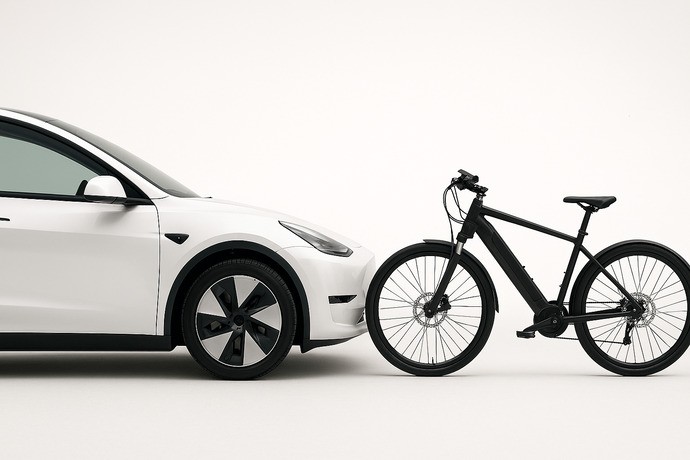News

December 2, 2025
A plain-English guide to e-bikes in the UK. Learn the law, how throttles work, battery care and real-world costs, plus tips on buying safely and protecting your bike from theft.
e-bikes

November 28, 2025
Thinking about cycling to work through winter? With the right kit and a few simple habits, riding in cold, wet or dark conditions is far easier than most people expect.
Cycling

November 28, 2025
An unlocked, graffiti-covered bike in central London claimed to be “tracked by GPS” – but can any bike truly be theft-proof? From locks and trackers to insurance, here’s what actually works.
Cycling

October 16, 2025
Virgin Media’s broadband cabinets were stripped of their metal covers in Nottinghamshire this autumn, leaving residents worried about exposed wiring and untidy streets. For us at ETA, the thefts carried an odd sense of déjà vu. In April we imagined a world where cyclists disguised their bikes as those very boxes – rideable sheds hidden in plain sight. The joke, of course, was that nowhere is truly safe. Thieves will steal anything, from locked bikes to the cabinets bolted into the ground that might have concealed them.
Cycling

October 16, 2025
This past week has felt drained of colour, with unrelenting grey skies casting a damp shadow over rides. To break the monotone, we’re giving away Cycology’s bold Aloha handlebar tape and socks – a burst of tropical cheer to brighten the road ahead.
Cycling

October 16, 2025
E-bike batteries are costly to make and quick to wear out, but Brighton studio Gomi is finding new life for them as power banks – a step towards greener cycling.
e-bikes

October 8, 2025
E-bike batteries are compact, valuable and increasingly targeted by thieves. Many insurers exclude battery-only theft — ETA treats the battery as integral to the bike, offering true cover.
e-bikes

October 7, 2025
Cargo e-bikes are replacing the school run and second cars for thousands of UK families, but once you’re carrying children the practical considerations change. From handling, seats and visibility to theft cover and breakdown support, here’s how to ride with confidence.
Cycling

October 7, 2025
Britain has poured billions into subsidising electric cars and charging points, but electric bikes receive no support. With cycling projects returning £5–13 in benefits for every £1 spent, are we backing the wrong horse?
e-bikes

October 6, 2025
British Transport Police will not investigate bikes stolen from stations if they’ve been locked for more than two hours, or are worth under £200. With an estimated 90,000 commuters leaving bikes all day at rail stations, most thefts will now go unchecked. While policing steps back, ETA Cycle Insurance continues to cover bikes at stations for up to 24 hours.
Cycling

